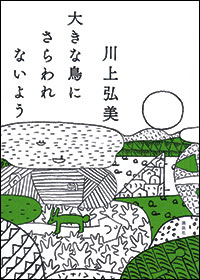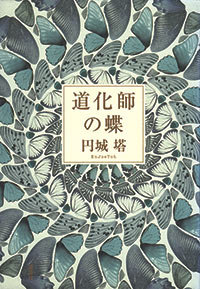SF in Japan

In my previous article on Japanese science fiction, published in Locus in 2016, I likened my experience of living in Japan to Urashima Taro’s rise from his present world (eighth century) to the world of the future, with its fast-forward jumble of pop-culture iconography. This sense of Japan and its current state in science fiction is even more relevant in the wake of COVID, as these changes have only accelerated. It’s not surprising, perhaps, that certain themes have emerged in our postpandemic era, as seen in many books and stories about our confrontation with disasters and their consequent traumas.

Susan J. Napier wrote about the interplay between our imaginary disasters and those we face in the real world in her 1996 essay called ‘‘Panic Sites: The Japanese Imagination of Disaster from Godzilla to Akira’’ (its title referencing a 1966 essay by Susan Sontag). She relates to the ways in which the popular media of manga, animation, and speculative fiction provide a framework for viewing Japan’s unique place in history and the traumas of its past.
In recent years, the most popular example of this can be seen in Makoto Shinkai’s Suzume (released as both a book and a film in 2023). The story follows a high school girl as she tries to close doorways to a dangerous twilight realm called the ‘‘Ever-After,’’ capable of destroying her country if they remain open. Throughout the story are scenes that evoke the Tohoku Earthquake and its tsunami in 2011.

Several works of science fiction in Japan have dealt with imaginary disasters in more subtle ways, as we can see from recent books by writers like Yoko Tawada, Toh EnJoe, and Hiromi Kawakami. Through shifting viewpoints, Tawada’s Scattered All Over the Earth (published in Japan in 2018, with an English translation by Margaret Mitsutani in 2022), follows a group of travelers through Europe as they encounter a world ravaged by global catastrophes as they deal with the loss (and the disappearance) of their own countries and languages. In the wake of that loss, and its consequent crisis of identity, one of the characters invents a language of her own. A more experimental exploration of this theme can be found in the Akutagawa prize-winning Harlequin Butterfly (translated in 2024) by Toh EnJoe. In his latest novella, we follow an affluent entrepreneur in his global pursuit of a mysteries polyglot translator, Tomoyuki Tomoyuki. Throughout the book are ruminations on the nature of stories and the ways in which we choose to tell them: ‘‘Imagine a story—one that’s utterly meaningless, contradictory, incoherent. What if there’s a language somewhere in the world that would render that story logically sound?’’
Aside from its focus on language and meaning, this is also densely layered meditation on memory and art that recalls the experimental work of Kōbō Abe’s The Box Man. While resonating with EnJoe’s concerns, Hiromi Kawakami takes a different approach in her mosaic novel Under the Eye of the Big Bird (2024). In a future world where humanity is overseen by ‘‘mothers’’ and ‘‘watchers,’’ humans have undergone radical adaptations. Through 14 interconnected stories that span geological eons, the stories are intimate explorations of grief and coming to terms with the loss with one’s own history and humanity. In one particularly poignant passage, a watcher observes: ‘‘We were supposed to be so much more than this, but as a species we were like an octopus trying to survive by eating its own limbs. And while we all saw the fatal error we were making, no one stepped forward with a decisive solution.’’

For those who might be more interested whimsical narratives, I would reference recent novels by Kiyoshi Shigematsu and Syou Ishida, both about the ways in which our feline companions can mediate our experience of grief (a theme so popular here, it might even be a subgenre). In The Blanket Cats by Kiyoshi Shigematsu, seven customers hope to change their lives by taking home special cats that are endowed with powers. It turns out the cats have an agenda of their own and confound the expectations of their hosts. In a more direct fashion, Syou Ishida’s We’ll Prescribe You a Cat is a celebration of our bonds with cats, and the ways in which they can heal and transform our lives. Patients of the Kokoro Clinic of the Soul, found only by those who are experiencing hardships in their lives, find an unexpected companionship that leads to self-discovery, hope, and a newfound purpose.
Last year was well-represented by new short story collections from Dempow Torishima and Hiromi Kawakami. Several years have passed since Dempow Torishima exploded onto the weird fiction scene with Sisyphean (2018), a mosaic novel of the far future with its vast cosmology and imaginative scope. His latest collection – Octologue (2023) – is no exception. In eight stories, he explores a variety of perspectives that include a factory worker, a prisoner, and an exploration team, as they make their way through a world of genetically altered creatures, alien plant ecosystems and surreal landscapes. Taking on similar concerns, with a very different approach, is Hiromi Kawakami’s Dragon Palace (2023). Through tales of a shapeshifting octopus, a woman yearning for a God, and an elderly man possessed by a fox spirit, she explores the ways in which individuals come to terms with a world of changing realities, including biology and destiny.

What these texts share in their diverse range of characters and settings is a yearning for stable ground, for a place to recovery from the sites of their individual traumas. Although we all have our own ‘‘panic sites,’’ it is one quality of our genre that we learn to face them through our imaginary creations, better able to emerge from them with a willingness to see the world with open eyes.
As with any review, thematic focus is often a necessary ameliorative to the scope of material on offer, but this small selection here is a good place to start if you’re interested in exploring Japanese science fiction. As a translator of fiction in Japan (including recent work by Dempow Torishima), it is heartening to see so many works in translation, and hopefully we’ll continue to celebrate diversity and new international voices in the future.
-Preston Grassmann
 While you are here, please take a moment to support Locus with a one-time or recurring donation. We rely on reader donations to keep the magazine and site going, and would like to keep the site paywall free, but WE NEED YOUR FINANCIAL SUPPORT to continue quality coverage of the science fiction and fantasy field.
While you are here, please take a moment to support Locus with a one-time or recurring donation. We rely on reader donations to keep the magazine and site going, and would like to keep the site paywall free, but WE NEED YOUR FINANCIAL SUPPORT to continue quality coverage of the science fiction and fantasy field.
©Locus Magazine. Copyrighted material may not be republished without permission of LSFF.






